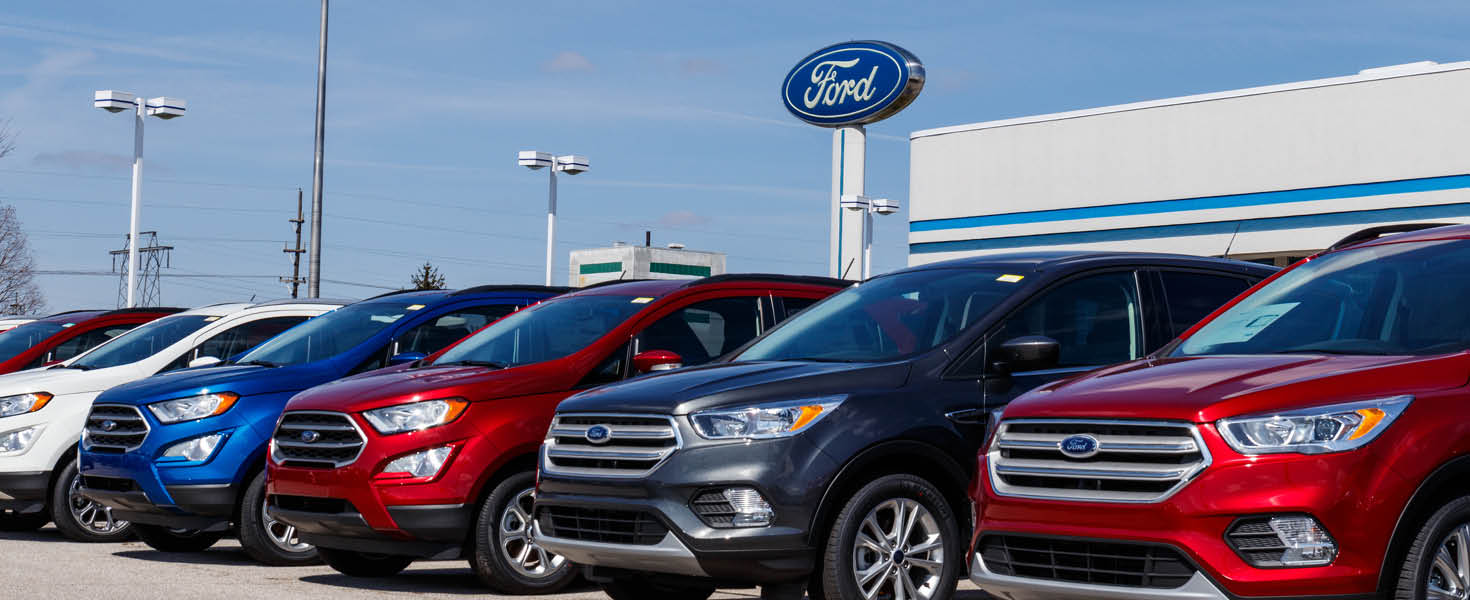
Should you buy a car or lease it? That is the age-old dilemma (or at least since the early 90s). And it’s a decision that’s not always cut and dry—especially when you have a car salesperson breathing down your neck. Buying a car gives you ownership of the vehicle, but it comes with a higher monthly cost. Leasing has lower installments, but you get into a vicious cycle where you never go a month without a car payment. In recent years, leasing a car has surged in popularity, but it may not be the best decision for you. So let’s take a deeper look to see what’s right for you.

The shift toward leasing
A lot has changed to make leasing more appealing to car buyers. For years, luxury cars were primarily leased by consumers. But now, more mainstream vehicles like sedans, compact cars, and SUVs are entering the new-car lease market, and attractive finance rates have made leasing seem like a pretty good deal. But is it?
Your local car dealership loves when you lease.
Plus, when you turn in a lease, you’re forced to go to the dealer, giving them the opportunity to put you into another leased vehicle, continuing the cycle.
So, what's the difference?
There are a lot of differences between buying and leasing. Here’s the breakdown that you can use to help understand which is the better solution for your specific situation:
|
Buying |
Leasing |
|
|
Who owns the vehicle |
You own the vehicle, and can keep it as long as you’d like. |
You do not own the vehicle. You can use it, but must return it to the dealer at the end of the lease unless you decide to buy it. |
|
Up-front costs |
Costs include the cash price or down payment, taxes, registration, and other fees. |
Costs include your first month’s payment, a refundable security deposit, acquisition fees, down payment, taxes, registration, and other fees. |
|
Monthly payments |
Loan payments are generally higher than lease payments because you’re paying for the entire price of the vehicle, plus taxes and fees. |
Lease payments are almost always lower than loan payments because you’re paying only for the vehicle’s depreciation during the lease term, plus interest, taxes, and fees. |
|
Early termination |
If needed, you can sell or trade in your car at any time. Proceeds can be put toward paying off any loan balance remaining. |
If you end a lease early, charges can be almost as costly as sticking out the duration of the contract. |
|
Returning the vehicle |
You can sell or trade in your vehicle when you decide you want a new car. |
You will return the vehicle at the end of the lease, pay any end-of-lease costs, and decide if you want to buy or lease again. |
|
Maintaining value |
The vehicle will depreciate, but its cash value is yours. |
The car’s future value doesn’t impact you financially, but you have no equity in the vehicle. |
|
Mileage |
You can drive as much as you want, but recognize mileage will impact the vehicle’s resale value. |
Most leases limit the mileage you can drive for the term of the contract; most are between 10k and 15k miles per year. If you go over the allotment, you may have to pay a penalty. |
|
Excessive wear and tear |
This isn’t your direct responsibility, but excessive wear and tear can impact your resale value. |
The majority of leases will hold you responsible and you’ll have to pay additional charges for exceeding what is deemed as “normal” wear and tear. |
|
End of term |
When your loan term ends, you have no further payments and can use the equity you’ve built to purchase your next vehicle. |
At the end of the lease, which is generally two to three years, you can finance the purchase of the car, lease another car, or buy another car. |
|
Vehicle modifications |
The vehicle is yours to modify however you’d like, but certain changes may void your warranty. |
You have limited opportunities to make modifications because the vehicle has to be returned in its original condition. Any damage caused by modifications will be something you’ll have to pay to fix. |
